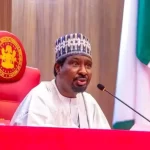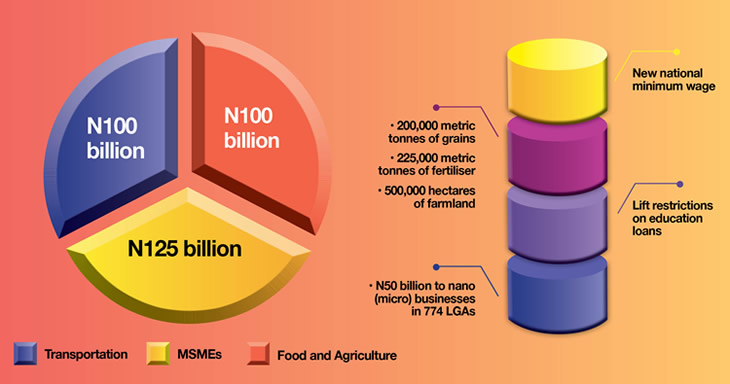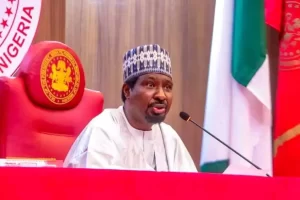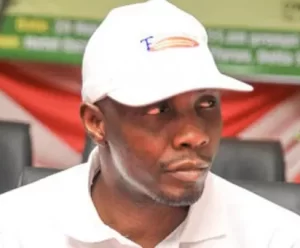By Marsha Owoicho
Two months after announcing bold measures to handle the structural problems in the economy, President Tinubu has laid out the first of initiatives to tackle the fallout from the policies he has undertaken so far.
In measures laid out by the president and his team on Monday, the administration plans bold measures aimed at injecting funds through credit to assist businesses. The initiative, which a source in the presidency called the Tinubu Marshall Plan (after the grand effort to rebuild the economy of post World War II Europe) is in the mould of the interventions to get commerce and industry to keep moving after what many see as the devastating impact of the policies. Specifically, the removal of petrol subsidy and the naira exchange rates unification have seen imports rise in prices, among them petrol price which has increased by over 200 per cent. This has pushed up inflation and impacted businesses and households.
The plan so far announced, according to the source, is just the federal government initiatives for now and does not include those of states nor are they exhaustive. He hints that ministries will develop further responses as are needed in the coming days and weeks.
What is in it for you?
Transportation
N100 billion to procure 3,000 20-seater buses to run on Compressed Natural Gas for distribution across the country.
Provision of buses to tertiary institutions across the country for the use of students to cushion transport costs.
Big Industries:
N75 billion to fund 75 enterprises to strengthen the manufacturing sector, increase capacity and create good paying jobs between now and March 2024.
Each beneficiary will access this credit at 9% per annum with a five-year tenor for long-term capital and one year for working capital.
MSMEs
For the Micro Small and Medium Enterprises (MSME) sector, the government is rolling out N125 billion.
Of the amount, N50 billion will be given to one million nano (micro) businesses as a conditional grant by March 2024. By the plan, 1,300 nano businesses in each of the 774 LGAs. This will further drive the businesses into financial inclusion in the formal banking sector.
100,000 SMEs across the country will receive between N500,000 and N1 million at 9% interest bringing up to N125 billion support. They will have a repayment period of 3 years.
Food and Agriculture:
Release of 200,000 metric tonnes of grains from strategic reserves to households across the country at moderate prices. Release of 225,000 metric tonnes of fertiliser, seedlings and other inputs to farmers as part of the food security agenda.
Plan to support the cultivation of 500,000 hectares of farmland and all year farming
N50 billion to support cultivation of 150,000 hectares of rice and maize
N50 billion to support cultivation of 100,000 hectares of wheat and cassava.
Both will target large farms and small holder farmers.
Minimum Wage:
Working with Labour to fix a new national minimum wage.
Education:
Removal of restrictions on access to education loans by students and families.
Tertiary institutions advised to halt further increases in dues and other charges.
Review:
The president also promised that his administration is monitoring the impact of the policies and will review as necessary
Gains of Reforms:
FG has saved over N1 trillion in the last two months from removing subsidy.
Proposals Not Enough, NLC Insists On Strike
The Nigeria Labour Congress (NLC) has criticized President Bola Tinubu’s national broadcast, saying that the speech lacked much in substance. It also said that it will go ahead with its protests as planned for Wednesday, August 2nd.
The NLC made its position known in a press statement dated Tuesday, August 1st, and signed by its President, Comrade Joe Ajaero. According to the labour union, “the promises and assurances made by President Tinubu…appear to be out of touch with reality” with regard to “the hardship and suffering that most Nigerians are going through at the moment.”
It said that despite Tinubu conveying a commitment to “a better and productive economy”, he failed remarkably to make a very important specific commitment that many had expected to hear in the broadcast, namely, how his government planned “to resuscitate our public refineries which have been lying comatose for so many years and is the major pain point in the whole subsidy narrative.”
“Unfortunately, the entire speech by the President…was completely silent on the issue of the repair of our national refineries,” the NLC lamented.
It also described as “unacceptable for the President and Commander-in-Chief to lament like ordinary Nigerians about a group that Mr. President routinely referred to in his speech as the “elites of the elites” who have stolen so much from Nigeria that they have become so powerful as to constitute a threat to democratic governance.” The NLC said it expected the President to bring “these economic saboteurs to justice and recovering what they have stolen.”
Affirming its decision to go ahead with the strike action, the Labour union lamented that the administration was in serious about the negotiations. “In all the meetings scheduled by the government, Organised Labour has been forced to negotiate with empty chairs on the Federal Government’s side as the Federal Government has not matched its public promises with firm commitment to negotiating in good faith with Labour. As a matter of fact, the sub-committee on wage award has not been inaugurated and has not met.”
The NLC stressed: “It is open knowledge that the review of the national minimum wage is a matter of the law, which is expected to happen in 2024. How would Nigerian workers cope with the current reality of hyper inflation and suffering unleashed by the hasty removal of the so-called petrol subsidy, till 2024 when the national minimum wage would be reviewed? This is incredible!
“The claims of interventions by the Federal Government through palliatives, loans and conditional grants to poor Nigerians, big manufacturing concerns and small businesses and provision of CNG buses remain what they are – promises! Nigerians are used to such promises which have never produced any verifiable and meaningful changes in the lives of citizens.
“For many Nigerians, it is incomprehensible that the principal actors in the current government including Mr. President himself were clear in 2012 on the need to tackle the fundamental issues that brought about petrol subsidy. Those issues included the failure of previous governments to repair our national refineries and bring those behind the monumental subsidy sleaze to book. Today, these issues were swept under the carpet in President Tinubu’s speech. Nigerians wonder ‘what has changed?’
“We wish to assure Nigerians that the Nigeria Labour Congress remains committed to matching discussions with government with the current realities of sufferings that Nigerians are going through. Until we see real commitment by government to do the needful to improve the lot of Nigerians and ameliorate the sufferings workers and ordinary Nigerians are going through, we remain committed to continue with our struggle.”










More Stories
Wanted terrorist Bello Turji reportedly murders 12 persons in Sokoto community hours after elaborate Eid celebration
Enugu woman who allegedly machetes sister to death, attempts to kill mother, niece, says she was possessed by strange spirit
Tinubu sacks NNPCL CEO Mele Kyari, replaces him with ex-Shell MD, Ojulari